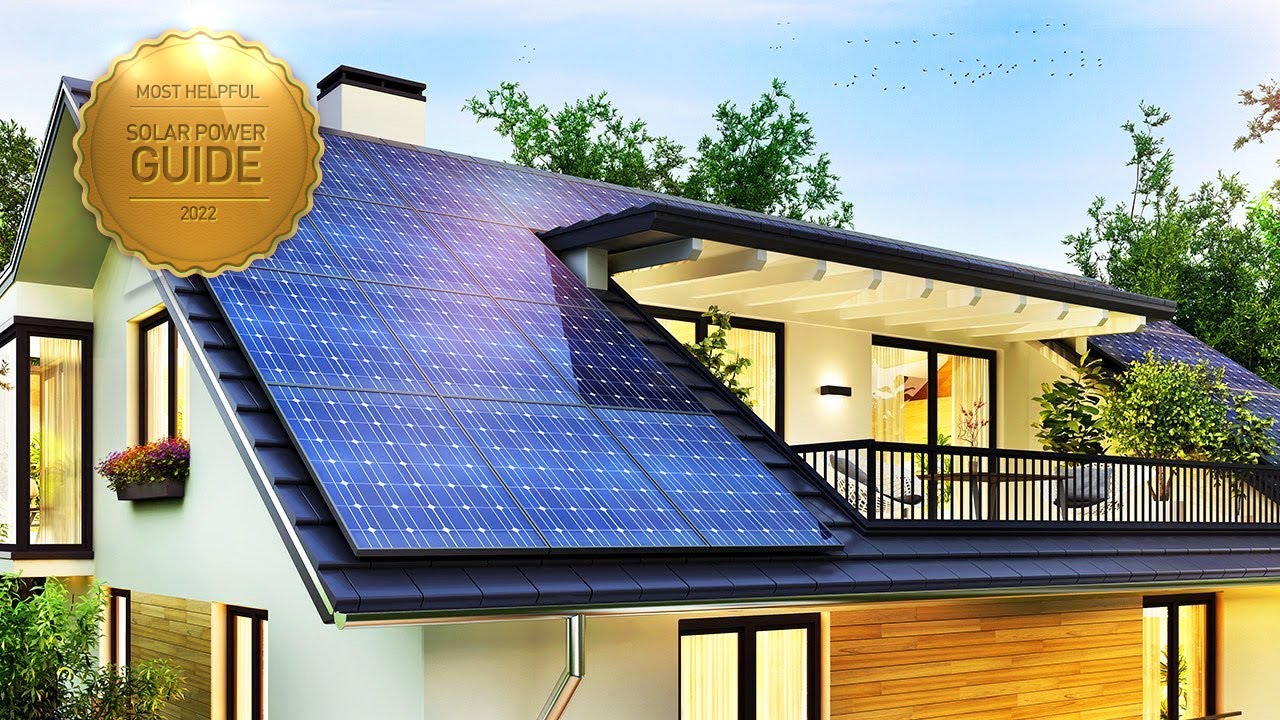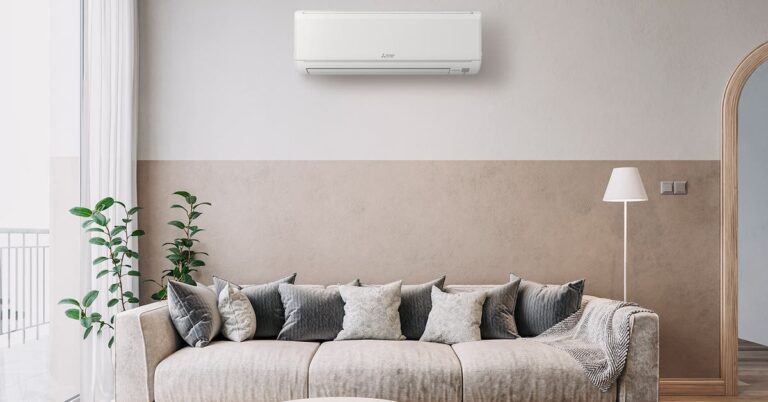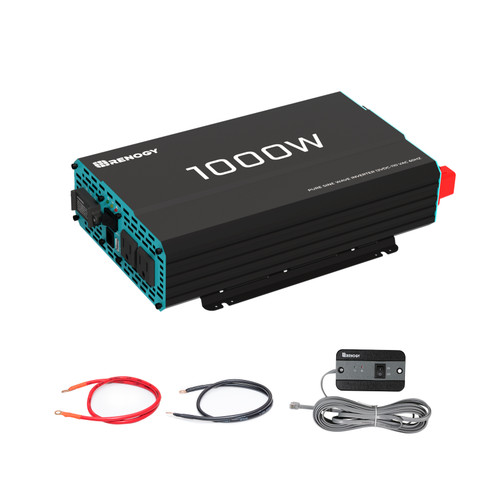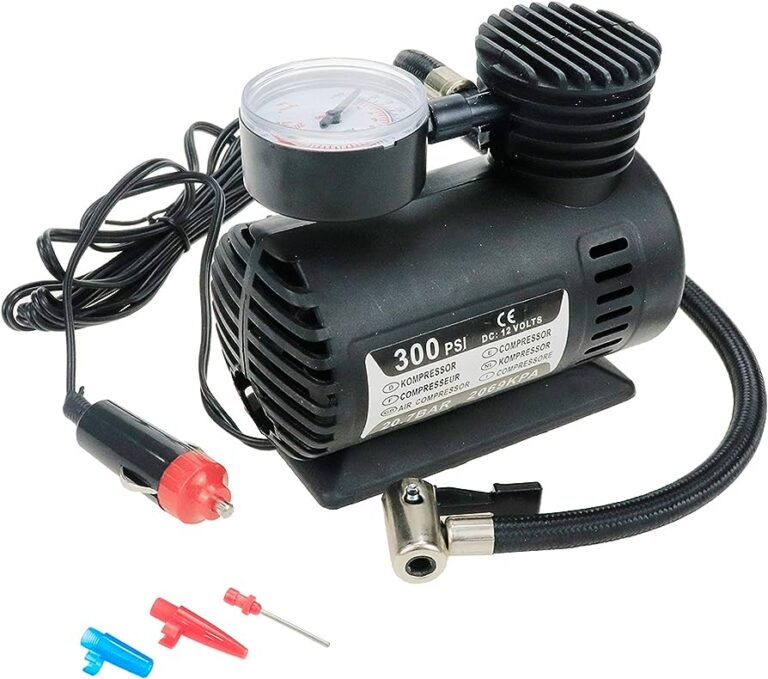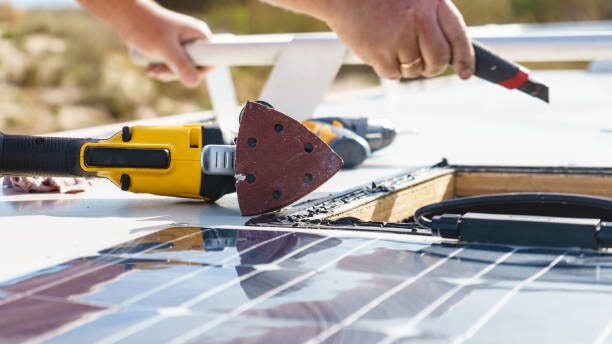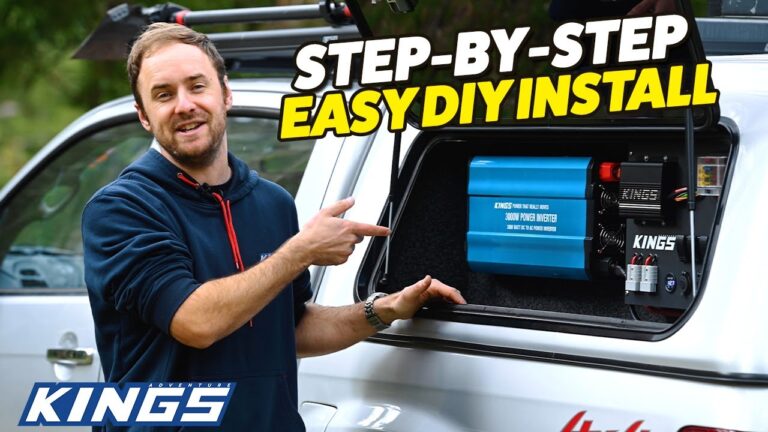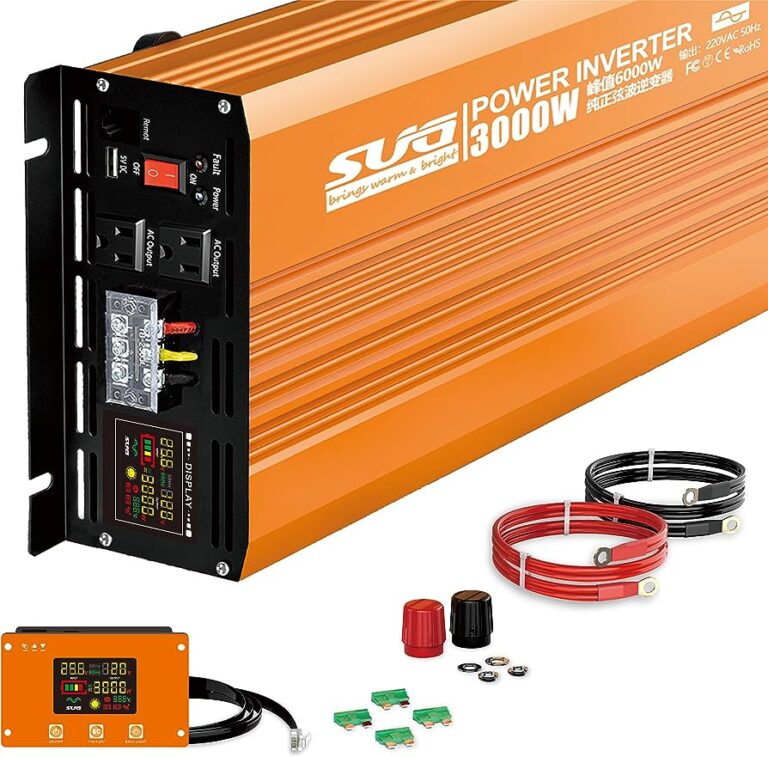Choosing the Perfect Solar Power Inverter for Your Home: A Complete Guide
Choosing the perfect solar power inverter for your home involves considering factors such as input and output voltage, frequency, and circuitry that suits your needs. SMA, SolarEdge, and Enphase are top-rated brands known for their string inverters, power optimizers, and microinverters, respectively.
The size of the solar inverter you need depends on your specific requirements, solar array size, and budget.
Understanding The Basics Of Solar Power Inverters
Discover the essential aspects of solar power inverters to help you choose the perfect one for your home. Consider factors such as input/output voltage, frequency, and compatible circuitry for optimal performance. With this complete guide, you’ll be equipped to make an informed decision.
Solar power inverters play a crucial role in converting the DC (direct current) electricity generated by your solar panels into usable AC (alternating current) electricity for your home. To help you choose the perfect solar power inverter for your needs, let’s delve into the basics of how solar power inverters work and explore the different types available.
How Solar Power Inverters Work:
- Solar power inverters are essential components of any solar energy system.
- They convert the DC electricity produced by solar panels into AC electricity suitable for powering your electrical appliances.
- The inverter controls the flow of electricity, ensuring optimal conversion efficiency.
- It works by continuously monitoring the solar panel voltage, current, and power output.
- The inverter then adjusts the output waveform to match the utility grid’s voltage and frequency requirements.
- This synchronization enables the solar energy system to supply power to your home and potentially feed excess electricity back into the grid.
- Solar power inverters also provide vital safety features, including ground fault protection and overvoltage protection.
Types Of Solar Power Inverters:
When it comes to solar power inverters, you have several options to choose from, each with its unique features and benefits. Let’s explore the three main types:
- String Inverters:
- String inverters are the most common type of solar power inverters.
- They are cost-effective and suitable for most residential solar installations.
- This type of inverter connects multiple solar panels into strings, which are then combined to create a higher voltage output.
- String inverters are typically installed in a central location and are relatively easy to maintain.
- However, they are sensitive to shading issues, meaning that if one panel is shaded, it can reduce the overall efficiency of the entire string.
- Microinverters:
- Microinverters are installed on each individual solar panel in your array.
- Unlike string inverters, microinverters operate independently, ensuring that shading on one panel does not affect the performance of others.
- This type of inverter offers higher system efficiency and flexibility in system design.
- It also provides real-time monitoring of each solar panel’s performance, allowing for easy troubleshooting and maintenance.
- However, microinverters can be more expensive compared to string inverters.
- Power Optimizers:
- Power optimizers are similar to microinverters in that they are installed on each solar panel.
- They optimize the performance of each panel by performing maximum power point tracking (MPPT) at the module level.
- This allows for independent voltage control and monitoring, similar to microinverters.
- Power optimizers maximize energy harvest, especially in scenarios with shading, uneven panel orientations, or complex roof layouts.
- However, like microinverters, they can be more expensive compared to string inverters.
Now that you understand the basics of solar power inverters and the different types available, you can make an informed decision when choosing the perfect solar power inverter for your home. Consider your specific needs, budget, and the unique characteristics of your solar installation to find the most suitable option.

Credit: www.solar.com
Factors To Consider When Choosing A Solar Power Inverter
To choose the perfect solar power inverter for your home, consider factors such as input DC voltage, output AC voltage, frequency, and circuitry that suits your needs. With brands like SMA, SolarEdge, and Enphase offering different options, finding the best solar inverter is possible based on your specific requirements and budget.
Solar Panel Compatibility
When choosing a solar power inverter for your home, it’s crucial to consider its compatibility with your solar panels. Here are some factors to keep in mind:
- Voltage Range: Ensure that the inverter can handle the voltage range of your solar panels. It should be compatible with both the minimum and maximum voltages produced by your panels.
- Panel Type: Different solar panels have different technologies and configurations. Check if the inverter supports the panel type you have installed, whether they are monocrystalline, polycrystalline, or thin-film panels.
- String Configuration: If you have multiple solar panels connected in series or parallel, confirm that the inverter can accommodate the string configuration of your panels.
Power Output
The power output of a solar power inverter determines how much electricity it can convert and supply to your home. Consider the following:
- Rated Power: Look for an inverter with a rated power that matches your energy consumption needs. It should be able to handle the maximum power output of your solar panels.
- Overload Capacity: Check if the inverter has an overload capacity that allows it to handle short power spikes without shutting down. This feature ensures uninterrupted power supply during peak usage.
- Surge Power Capability: Some appliances, such as refrigerators or air conditioners, require a higher surge power at startup. Make sure the inverter can handle these temporary power surges to prevent tripping or damage.
Efficiency
Solar power inverters have different levels of efficiency in converting DC power from solar panels to AC power for household use. Consider the following efficiency factors:
- Conversion Efficiency: Look for inverters with high conversion efficiency to maximize the energy harvested from your solar panels. Higher efficiency means less energy loss during the conversion process.
- Standby Losses: Check if the inverter has low standby losses, as this minimizes energy wastage when there is no solar power generation.
- MPPT Efficiency: If your solar panels use Maximum Power Point Tracking (MPPT) technology, ensure that the inverter has high MPPT efficiency. This feature optimizes power output by continuously adjusting the operating point of the solar panels.
Monitoring And Data Analysis
Having access to real-time monitoring and data analysis of your solar power system can help you track its performance and identify any issues. Look for the following features:
- Monitoring Platform: Choose an inverter that offers a user-friendly monitoring platform, either through a display panel or a smartphone app. This allows you to easily check the energy production, system status, and historical data.
- Data Analysis: Some inverters provide detailed data analysis, including graphs and charts, to help you better understand your energy consumption patterns and optimize your solar power usage.
Warranty And Support
The warranty and support provided by the manufacturer are essential factors to consider when choosing a solar power inverter. Here are some key points to look for:
- Warranty Period: Check the length of the warranty offered by the manufacturer. A longer warranty period indicates the manufacturer’s confidence in the product’s quality and durability.
- Service and Support: Research the manufacturer’s reputation for customer service and technical support. Ensure that they have a reliable support system in place in case you encounter any issues or need assistance.
- Extended Warranty Option: Some manufacturers offer the option to extend the standard warranty for an additional fee. Consider this if you want extra peace of mind and protection for your investment.
By considering these factors, you can choose the perfect solar power inverter for your home that meets your specific needs and ensures optimal energy generation and utilization.
Step-By-Step Guide To Choosing The Right Solar Power Inverter
To choose the perfect solar power inverter for your home, you need to consider factors like input and output voltage, frequency, and compatible circuitry. Make sure the inverter meets your specific needs to ensure effective performance.
Assessing Your Energy Needs:
- Determine your average daily energy consumption: Calculate the total number of kilowatt-hours (kWh) your household typically uses each day. This will help you determine the capacity and power rating your solar inverter needs to accommodate.
- Consider future energy needs: Keep in mind any potential changes in your energy consumption, such as adding new appliances or electric vehicles, when choosing the size of your solar inverter. It’s better to oversize your inverter slightly to allow for future growth.
- Evaluate your electricity usage patterns: Assess when you use the most energy throughout the day. Do you have higher energy demands during the morning, afternoon, or evening? This information will help you select an inverter that can handle your peak energy usage.
Evaluating Your Roof And Solar Array:
- Determine available roof space: Measure the available roof area that can accommodate solar panels. Consider any obstructions, such as chimneys or skylights, that may impact panel placement.
- Assess roof orientation and angle: Determine the optimal orientation and angle for maximum sun exposure based on your location. South-facing roofs with a tilt angle between 30-45 degrees typically yield the best results.
- Check for shading issues: Identify any potential shading obstacles such as nearby trees, buildings, or other obstructions. Shading can significantly reduce solar panel performance, so it’s crucial to choose an inverter that can handle shading issues effectively.
Researching And Comparing Inverter Brands And Models:
- Understand different inverter types: Research the various types of solar inverters available, including string inverters, microinverters, and power optimizers. Each type offers unique benefits and considerations.
- Compare efficiency ratings: Look for inverters with high efficiency ratings to ensure maximum power conversion. A more efficient inverter will generate more usable electricity from your solar panels.
- Consider warranty and reliability: Check the warranty and reliability of different inverter brands and models. Look for warranties that offer long-term coverage and reliable customer support.
Consulting With Solar Installers:
- Seek professional advice: Consult with experienced solar installers who can evaluate your specific situation and recommend the best solar inverter for your home. They have the expertise to assess your energy needs, evaluate your roof, and provide specific recommendations.
- Request multiple quotes: Obtain quotes from different installers to compare prices, services, and inverter options. This will help you make an informed decision based on your budget and requirements.
- Ask about installer experience: Inquire about the installers’ experience and certifications. Choosing an installer with a proven track record and industry expertise will ensure a high-quality installation.
Making A Final Decision And Purchase:
- Consider overall system compatibility: Ensure that the inverter you choose is compatible with your existing solar panels and other system components. Check the specifications and compatibility requirements provided by the inverter manufacturer.
- Read customer reviews and testimonials: Research customer reviews and testimonials to gain insights into the performance and reliability of the inverters you are considering. This can provide valuable information from real customers’ experiences.
- Compare prices and value: Consider the price of the solar inverter, installation costs, and the overall value offered by each option. Look for a balance between affordability and quality to make a sound investment decision.
Remember to thoroughly assess your energy needs, evaluate your roof and solar array, research and compare inverter brands and models, consult with solar installers, and make a final decision and purchase based on your specific requirements. By following this step-by-step guide, you can choose the perfect solar power inverter for your home.
Frequently Asked Questions For Choosing The Perfect Solar Power Inverter For Your Home: A Complete Guide
How Do I Choose A Solar Inverter For My Home?
6 kW inverter. The inverter size should match or slightly exceed the total power capacity of your solar system to ensure optimal performance. This will allow the inverter to convert the DC power generated by the solar panels into usable AC power for your home.
It is also important to consider the type of inverter that suits your specific needs. There are three main types: string inverters, power optimizers, and microinverters. String inverters are suitable for simple installations with unshaded panels, while power optimizers and microinverters are recommended for systems with shading or panels facing different directions.
Additionally, consider the brand and warranty of the inverter, as well as its compatibility with monitoring systems and smart technologies. Consulting with a professional solar installer can help you determine the best inverter option for your home.
How Do I Know Which Solar Inverter Is Best?
To determine the best solar inverter for your needs, consider factors like input DC voltage, output AC voltage, frequency, and compatible circuitry. The ideal solar inverter for residential use can vary based on your specific requirements, solar array size, and budget.
Some top-rated brands to consider are SMA, SolarEdge, and Enphase. SMA is known for its string inverters, while SolarEdge and Enphase are renowned for their power optimizers and microinverters. Aligning the inverter’s DC rating with your solar system’s capacity is crucial.
For example, if you have a 6-kilowatt system, you’ll need an inverter that can handle the same capacity. By considering these factors and reputable brands, you can make an informed decision when choosing the best solar inverter for your home.
What Size Solar Inverter Do I Need For My Home?
A solar inverter that can handle at least 6 kW of DC power. It’s important to match the size of the inverter to the size of your solar system to ensure maximum efficiency.
How Do I Know What Size Inverter I Need?
To determine the size of the inverter you need for your solar system, match it with the DC rating of the system itself. For example, if you have a 6 kilowatt (kW) solar system, you’ll need an inverter with a similar rating.
The inverter converts the DC power generated by the solar panels into AC power for your home’s use. By aligning the inverter size with your system’s DC rating, you ensure optimal performance and efficiency. It’s important to note that oversized or undersized inverters can result in decreased energy production and potential system damage.
For residential use, popular brands like SMA, SolarEdge, and Enphase offer a range of inverters to suit different needs and budgets. SMA is known for its string inverters, while SolarEdge and Enphase specialize in power optimizers and microinverters respectively. Consider your specific requirements, system size, and budget when choosing the best solar inverter for your home.
Conclusion
) solar system, you will need a 6 kW inverter. It’s important to match the size of the inverter to the size of your solar array to ensure optimal performance. Oversizing or undersizing the inverter can lead to efficiency losses and may even damage your system.
Additionally, consider the features and specifications of the inverter that best suit your needs. Look for inverters with high efficiency ratings, reliable warranties, and advanced monitoring capabilities. Research different brands and read customer reviews to get a better understanding of the quality and performance of each inverter.
By taking the time to choose the perfect solar power inverter for your home, you can maximize the benefits of your solar system and enjoy sustainable, clean energy for years to come.

